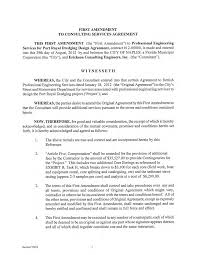
A strong ethics is crucial to success at the upper level of sales analyst career. This will help you achieve results, even when faced with difficult circumstances. You will be able to prove your worth in situations where you may need to make ethical choices. Here are the steps to help you build an ethical compass for sales analyst careers.
Job description
A sales analyst's job is to monitor sales figures, identify areas for improvement, provide support to the marketing department and sales team. They should be able manage multiple projects simultaneously and have excellent communication skills. They must also have worked with customer-facing teams in the past, including at tech firms. Strong negotiation and verbal skills are also required. They should also have a basic understanding of digital marketing.
Sales analysts are part of the marketing department and work together with other departments to analyze trends and data to increase sales. To increase sales and market share, they analyze customer behavior and competitor data. They work with other departments to create promotional materials and marketing campaigns that increase sales. Sales analysts are also often responsible for helping develop marketing budgets and providing guidance for decision makers.

Duties
While the duties of a Sales Analyst are diverse, they tend to focus on analyzing sales data within an organization. Analysts evaluate competitor activity and analyze customer metrics in order to offer recommendations for improving sales performance. They offer guidance to marketing teams and help develop budgets and promotional campaigns.
Sales analysts also have to evaluate and present data to executives. This data can include information about market trends, competitor research and general sales trend. They also recommend strategies and tactics for increasing revenue and eliminating weak points in a company's sales ecosystem. They can help plan and analyze future budgets and aid with restructuring or changes to budgets.
Education
Sales analysts are looking for people who have a passion and drive for their field. He or she must possess excellent communication skills and analytical skills. He or she must have previous experience in sales and marketing. This job requires at least a bachelor's level of education.
A sales analyst's main duties include assessing sales data to determine the success of a company. They create reports that analyze market trends, customer metrics, and other data. They may also provide advice to the marketing team about how to target certain markets.

Salary
The job of a sales analyst is to monitor and analyze market trends and competition to aid the sales team in making strategic sales decisions. They make recommendations about how to increase sales. Sales analysts typically have a degree in finance, marketing, or business administration. You will also need to have experience with CRM software and strong research skills. The average salary for this job is $132,132 per year. These are other duties that a sales analyst might perform.
The salary for this job is determined by education, experience, location, and other factors. This role is often responsible to monitor and analyze customer preferences and complete sales orders as well client-requested transactions. The minimum wage for this position varies by jurisdiction. Salary figures should be verified with the employer to ensure they are correct.
FAQ
What is the secret to modern consulting?
The first consultants were accountants that helped companies manage finances. Because they were skilled in managing financial information, they became "accounting consulting". However, this role soon expanded into other areas, such as human resources management.
The French word for "to advice" was the inspiration behind the term "consultant." This was used by businessmen as a way to describe someone who could provide guidance on running an organization. Even today, many business owners still use "consultant" when referring to professional advisors.
What happens after the consultant completes the job?
After the consultant completes their work, he/she will submit a final summary of the results. This report includes the deliverables and project timelines.
You will then review the report to determine if the consultant fulfilled your expectations. If not, you can either request changes or terminate the contract.
Why would a company want to hire a consultant for their business?
Consultants offer expert advice to help improve your business' performance. They aren't there to sell your products.
A consultant assists companies in making better decisions by offering sound analysis as well as suggestions for improvement.
Consultants often work closely alongside senior management teams to help understand what they need to succeed.
They also offer leadership training and coaching to ensure that employees are able to perform at their best.
They can help businesses reduce costs, streamline processes, and increase efficiency.
What skills are necessary for consulting?
Consultants should be able to communicate effectively and have excellent analytical skills. This is vital because you may not understand the scope of your work. It is important to learn how to quickly solve problems and manage people.
You also need to have excellent communication skills. Most clients expect to hear back within 24 hours. If they don’t hear from you within 24 hours, they assume you don’t care. It's important, therefore, to always keep them informed and ensure they understand what is going on.
What qualifications does a consultant need?
Not only is it important to have an MBA but you should also have business consulting experience. Two years experience should be gained in consulting or training for a major corporation.
You must have worked closely with senior management teams on strategy development projects. This requires you to feel confident presenting ideas to clients, and getting buy-in.
You'll also need to pass a professional qualification exam such as the Chartered Management Institute's Certified Management Consultant (CMC) certification.
Statistics
- Over 62% of consultants were dissatisfied with their former jobs before starting their consulting business. (consultingsuccess.com)
- My 10 years of experience and 6-step program have helped over 20 clients boost their sales by an average of 33% in 6 months. (consultingsuccess.com)
- So, if you help your clients increase their sales by 33%, then use a word like “revolution” instead of “increase.” (consultingsuccess.com)
- "From there, I told them my rates were going up 25%, this is the new hourly rate, and every single one of them said 'done, fine.' (nerdwallet.com)
- Over 50% of consultants get their first consulting client through a referral from their network. (consultingsuccess.com)
External Links
How To
What Does A Typical Day For A Consultant Look Like?
The type of work that you are doing will affect the typical day. You will be spending time researching, planning new ideas, meeting with clients, and creating reports.
You will often have meetings where you discuss issues and problems with clients. These meetings can be held over the telephone, online or face-to face.
Also, proposals are documents that outline your ideas or plans for clients. These proposals should be discussed with a mentor or colleague before being presented to clients.
After all the planning and preparation you will have to put your efforts into creating some content. You could write articles, design websites, edit photos or conduct interviews.
It depends on the project's scope, you might need to do some research to collect relevant statistics. You might need to determine how many customers you have, and whether they buy more than one product.
After gathering enough information, you can present your findings to clients. Your findings can be presented orally or written.
After your initial consultation with clients, you need to keep in touch. You can call clients to ask how they are doing or send emails asking for confirmation that your proposal was received.
Although it takes time, this process is worth it. It's also important to keep your eyes on the prize and maintain good relations with clients.